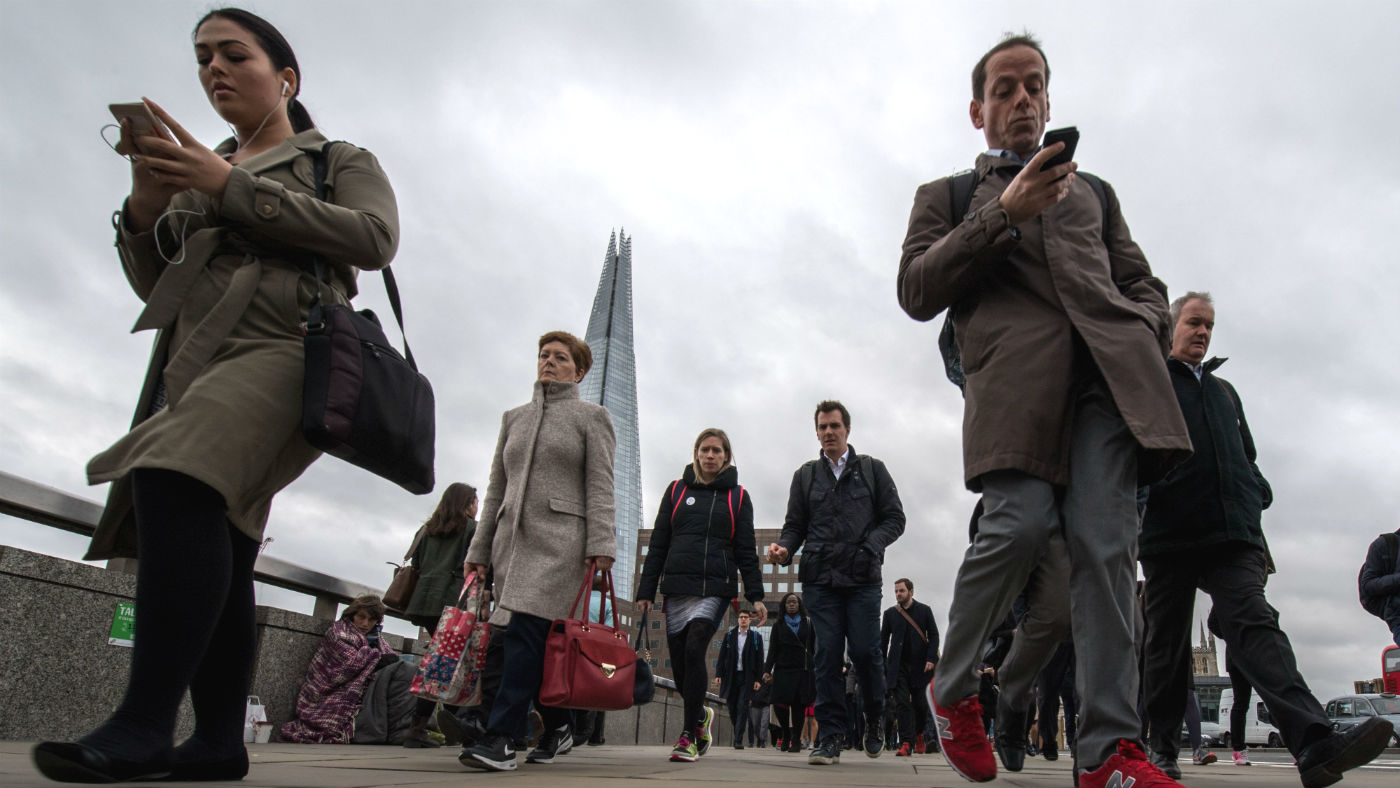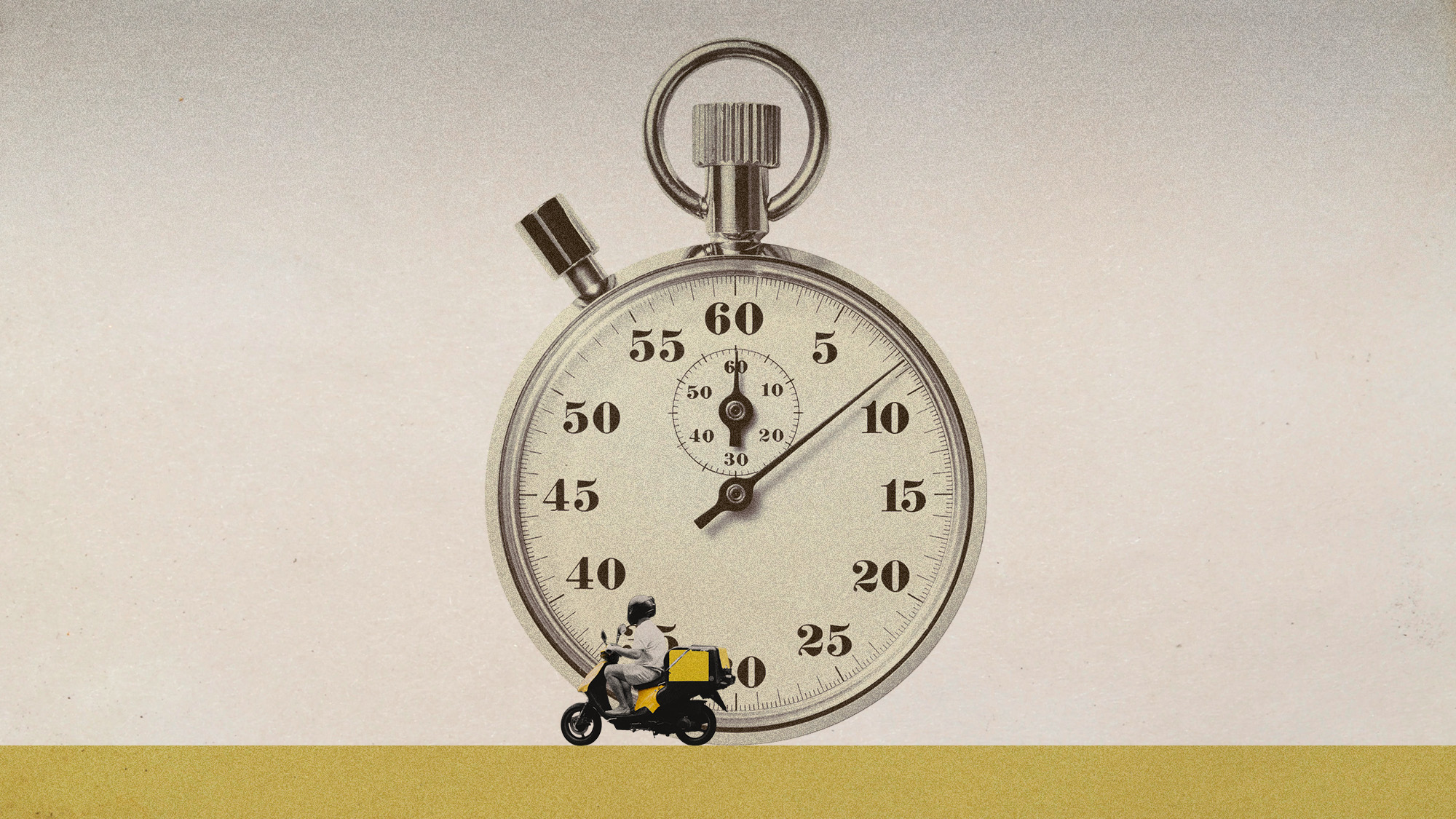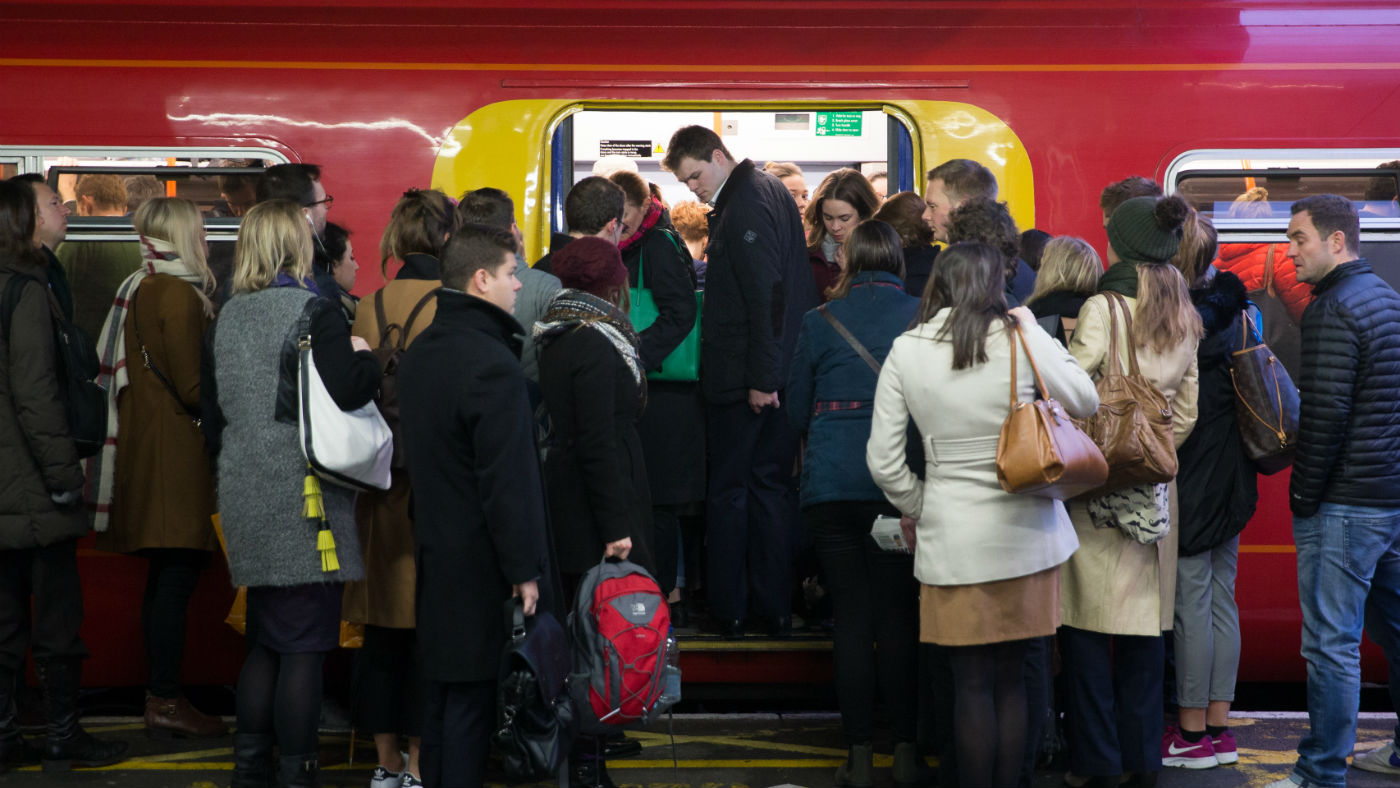Should checking emails while commuting count as work?
Wider access to wi-fi on trains has extended the working day, says study

A free daily email with the biggest news stories of the day – and the best features from TheWeek.com
You are now subscribed
Your newsletter sign-up was successful
Commuters who regularly use travel time for work emails should have their journeys counted as part of the working day, researchers say.
A study from the University of the West of England, which examined 5,000 rail passengers on commuter routes into London, found wider access to wi-fi on trains and the spread of mobile phones has effectively extended the working day.
The report, presented to the Royal Geographical Society yesterday, revealed that 54% of commuters using the train's wi-fi were sending work emails.
The Week
Escape your echo chamber. Get the facts behind the news, plus analysis from multiple perspectives.

Sign up for The Week's Free Newsletters
From our morning news briefing to a weekly Good News Newsletter, get the best of The Week delivered directly to your inbox.
From our morning news briefing to a weekly Good News Newsletter, get the best of The Week delivered directly to your inbox.
Researchers found commuters heading into the work were using their journeys to catch up on emails ahead of the coming day, while those returning home were finishing off work not completed during the day.
Far from providing people with more flexibility over working, the study revealed that access to technology while travelling makes people work extra hours on top of their time in the office – and even increases pressure and expectations that they will do so.
“The findings raise questions about the work-life balance - and whether it is healthy to stretch out the working day with people routinely answering emails beyond office hours”, says the BBC.
This increasing flexibility “has the potential to radically shift the work-life balance for the better”, says Jamie Kerr from the Institute of Directors, “but it also leaves open the door to stress and lower productivity”.
A free daily email with the biggest news stories of the day – and the best features from TheWeek.com
The research comes as a new study found that taking time off work can help you to live longer.
A 40-year survey, presented at the European Society of Cardiology conference in Munich, concluded that people who took fewer than three weeks of annual leave were a third more likely to die young than those who took more.
-
 The environmental cost of GLP-1s
The environmental cost of GLP-1sThe explainer Producing the drugs is a dirty process
-
 Nuuk becomes ground zero for Greenland’s diplomatic straits
Nuuk becomes ground zero for Greenland’s diplomatic straitsIN THE SPOTLIGHT A flurry of new consular activity in the remote Danish protectorate shows how important Greenland has become to Europeans’ anxiety about American imperialism
-
 ‘This is something that happens all too often’
‘This is something that happens all too often’Instant Opinion Opinion, comment and editorials of the day
-
 Blinkit: India’s 10-minute delivery app
Blinkit: India’s 10-minute delivery appUnder The Radar Market pressures and rider unrest are casting a shadow over leading player
-
 A potential railway megamerger raises monopoly questions
A potential railway megamerger raises monopoly questionsThe Explainer Union Pacific and Norfolk Southern would create the country's largest railway operator
-
 Which public sector workers are striking – and when?
Which public sector workers are striking – and when?In Depth Teachers and rail workers taking part in major public sector walkout tomorrow
-
 Labour shortages: the ‘most urgent problem’ facing the UK economy right now
Labour shortages: the ‘most urgent problem’ facing the UK economy right nowSpeed Read Britain is currently in the grip of an ‘employment crisis’
-
 Will the energy war hurt Europe more than Russia?
Will the energy war hurt Europe more than Russia?Speed Read European Commission proposes a total ban on Russian oil
-
 Will Elon Musk manage to take over Twitter?
Will Elon Musk manage to take over Twitter?Speed Read The world’s richest man has launched a hostile takeover bid worth $43bn
-
 Shoppers urged not to buy into dodgy Black Friday deals
Shoppers urged not to buy into dodgy Black Friday dealsSpeed Read Consumer watchdog says better prices can be had on most of the so-called bargain offers
-
 Ryanair: readying for departure from London
Ryanair: readying for departure from LondonSpeed Read Plans to delist Ryanair from the London Stock Exchange could spell ‘another blow’ to the ‘dwindling’ London market